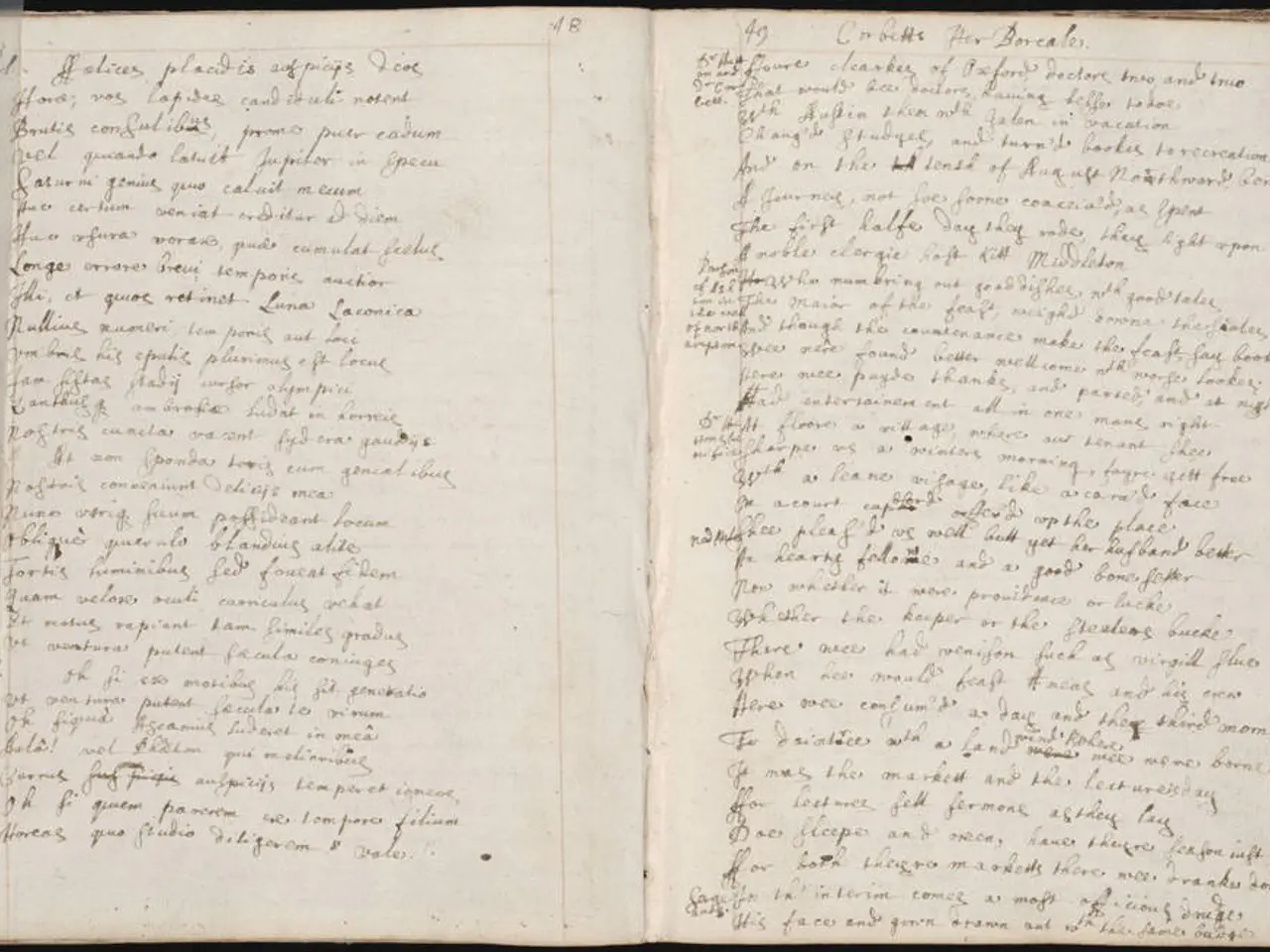Spark Your Creativity: Act Now Instead of Awaiting Writing Motivation
In the realm of writing, inspiration and creativity are essential ingredients for high-concept work. But what if inspiration doesn't come knocking at your door? Business coach Naomi Dunford advises handcuffing it and dragging it into your office, emphasising the importance of proactive work.
By making a practice of constantly working on ideas, one can invite inspiration to join them, rather than waiting for it. This approach, supported by author Steven Pressfield in his book "Turning Pro", suggests that professionals do not wait for inspiration; they act in anticipation of it.
Regular writing is a key factor in fostering creativity. Writers who write on a daily basis are twice as likely to have frequent creative thoughts, according to well-known researcher David Boice. Consistently tending to one's work increases the likelihood of inspiration and new ideas arising.
Neil Gaiman, renowned author, recommends establishing a fixed writing appointment with yourself, ideally in a consistent place, and embracing boredom to stimulate creativity—removing distractions to allow the mind to wander productively. Writing longhand first can help separate the creative flow from editing impulses, which can interrupt new ideas.
Practical strategies for building a writing habit include setting a regular writing schedule and location, reducing activation energy by preparing writing tools and ideas in advance, committing publicly or with accountability partners, and using techniques such as free writing to lower pressure and stimulate creativity.
Free writing, a method where writers write continuously without self-censorship or editing for a set time, helps generate ideas outside usual boundaries and reduces inhibitions, which can reveal creative insights otherwise suppressed by perfectionism.
Regular engagement with work allows the subconscious mind to solve problems, develop ideas, and answer questions even while doing other activities. In the realm of screenwriting, it's encouraged to work on high concepts from the start, but one can develop them without waiting for inspiration.
Moreover, regularly writing journals or keeping a daily log improves overall writing skill and keeps the mind engaged with language and ideas continuously, fostering creativity through cumulative practice and reflection. Pre-writing activities like reading prime the brain with raw material, increasing the chance for new conceptual combinations during writing sessions.
Mike Bechtle, in his article "Overcoming Writer's Block Without Willpower" in the latest print issue of Writer's Digest, notes that when something becomes a habit, it no longer dips into one's willpower supply. Pressfield, in his post "Personal Anguish", suggests that the Muse appreciates seeing writers taking care of their work, even in times of personal anguish.
In sum, practical habit formation revolves around preparation, scheduling, reducing barriers to writing, and embracing unstructured writing methods. These set up productive mental conditions, where sustained engagement and gradual incubation often lead to flashes of insight and creative breakthroughs.
- To encourage personal growth and productivity, creating a consistent writing schedule and location can help foster a daily writing habit, similar to the advice given by Mike Bechtle in his article "Overcoming Writer's Block Without Willpower".
- By regularly engaging in free writing, a method that generates ideas outside usual boundaries without self-censorship or editing, one can foster creativity and reveal creative insights that may have been suppressed by perfectionism, aligning with the recommendations of author Neil Gaiman.
- In the studio of screenwriting, script ideas can be developed proactively without waiting for inspiration, taking a cue from the advice of business coach Naomi Dunford to handcuff inspiration and drag it into your office.




